Have you ever dreamed about working from home? Telepractice might just be the answer you’re looking for! In today’s episode my special guest, Nanette Cote, joins me to talk all about how to get started with telepractice.
Links & Resources
Episode 40 – How to Start a Private Practice
Full Transcript of Podcast: How to Get Started with Telepractice
Episode 41: How to Get Started with Telepractice
Jessica: You're listening to the Speech Space Podcast, a podcast full of tips and resources for SLPs. I'm your host, Jessica Cassity, and this is Episode 41. Hi, everyone! Today, we are going to be talking about telepractice with special guest, Nanette Cote. Before we get started, I wanted to take a brief moment to let you know that this podcast is brought to you by The Digital SLP membership site, which is a site that features time-saving no print and low prep resources for SLPs. To learn more about the Digital SLP membership, please head on over to thedigitalslp.com/digitalslp. Like I mentioned before, we're going to be talking with Nanette Cote again. So if you miss the last episode, which was Episode 40, then you'll want to make sure that you go back and check that one out. Nanette came on the show and talked all about starting your own private practice. So if that's something of interest to you, you'll definitely want to make sure that you listen to it. I will also make sure to leave that link in the show notes for you as well. All right, let's go ahead and bring Nanette on so we can talk all about telepractice. Hi Nanette! Thank you so much for coming back on this show. I'm so happy to have you, and I know that our listeners are going to be very excited to hear from you again.
Nanette: Thank you. Good to be back.
Jessica: So can you talk a little bit about what your experience is with telepractice?
Nanette: So I'm going into my third year now. I'm starting up my third school year with PresenceLearning. I'm an independent contractor. So that means that I'm working with them and I'm not obligated to work to a certain date, but I have a contract that says I've agreed to see kids through the end of the school year. At any point in time, if something isn't working out as an independent contractor, you've got the ability to leave the contract and no harm done, but I like the position that I've been in because I'm working for a company that will, you know, send clients to me. So they've supported me first with licensing in other states because I'm in Illinois and I see most of my clients in California and last year I had some in Indiana. So they reimbursed me for the licensing for that. And I've also got the tech support there with the company. So if a problem comes up and I'm having trouble connecting with the new family, I've got a link I go right into and I can bring a live tech person in who can see the family's computer system. They can see mine, they can figure things out. So I do not have to be tech savvy in that way. I found PresenceLearning at one of my local state speech and language conferences, because if you ever go to that section where the vendors are, there's usually a couple folks that have a booth. And I just found that researching, speaking, you know, directly with a few companies there was really helpful. It gave me a better sense of what they offered, what the whole programs were about. And the only other thing, when it comes to telepractice, that I've learned along the way and heard recently to, some states will not allow for a speech and language assistance. So if you're an SLPA, you cannot participate. I think Texas, I'm pretty sure they just came up somewhere in social media recently. And then most companies will require that you have at least two or three years experience in the school system. So you've got to have your CEs. You've got to have that experience behind you before you can even go through the whole interview process with them.
Jessica: Okay. Now what made you get interested in telepractice?
Nanette: So from the previous podcast, if you were listening, I'm in private practice and I've found that I was able to really fill my caseload with a mix of kids preschool-aged that I could see in the mornings and then school-aged kids that I could see after school hours. But there was this chunk of time between, I'd say like 11 and 2 o'clock my time in the Midwest, that I didn't have clients to schedule. So my preschool kids were maybe done and napping, or they were in a late day preschool program. And I really wanted something to fill that time because I felt like I could capture, you know, more in my caseload if I could fill those hours. So I kind of started researching a few different companies. I looked at PresenceLearning, I looked at TinyEYE, and I spoke with some folks at a conference about Aphasia Toolbox. So they, I believe they work more so with an older population working on aphasia therapy. So that's kind of what led me to finding the one that would be the best match for me and needing to just put in 10 hours a week. So with PresenceLearning, that's the minimum. So you have to be able to give them 10 hours of therapy. And I thought that's perfect. That's exactly what I need to fill those empty spaces.
Jessica: Now is that direct therapy time, 10 hours?
Nanette: That is, yeah, good question. So, yes, but I can also bill for time that I spend documenting and planning. So if I have to put together some activities and create a little metrics about goals so that I can then later pull up those goals when I'm in a session, I can document for all of that time and get paid. Something for my time doing that effort in that work, I get paid for writing IEP goals, attending IEP meetings, talking with a parent or collaborating with somebody on my staff about a mutual client that we have. And you also get paid for those times, if a client does not show. You're compensated something, you get a small percentage to at least give you something rather than nothing. So in the private practice world, when I don't have a client show up because they're sick or whatnot, you don't get paid anything. There's nothing that I can charge your family for a late cancellation. If it's an emergency or if the kids aren't feeling well, I definitely don't want them bringing them out to a session. And so that's the only downfall that you don't get that full payment, but with telepractice, the company does give you a little something to fill that void.
Jessica: Yeah, that's great. Now I know that you spoke a little bit about this already, some of the benefits of working for a big company. Are people doing this solo as well? Or do you feel like most people doing telepractice or working for a company right now?
Nanette: Yeah, I think it's a mix. I don't know. I feel like there is more and more surfacing out there over the last few years. And even just recently I've seen Global Teletherapy pop-up. They've probably been around a little while. I don't know. They have been posting more on social media. I've seen other private practice colleagues that are in a social media site on Facebook with me mentioned that they're hiring. So I thought that's interesting, there're in private practice and they're hiring, I like that angle. So it's becoming, and you'll notice even with ASHA, I know that there's a session on telepractice. So it's definitely becoming, I think the wave of the future. And it's been a great fit for so many people that it's hard to see why it wouldn't be, you know, something that just keeps broadening out. For me, I wanted to start with the company because like I said, they'd get me those referrals. So, that's one less thing I'd have to worry about. And I don't have to worry about insurance billing and all that because I'm just doing my schedule billing. And once a month I submit all of my notes and then I get a direct deposit check a couple of weeks later. So I really wanted a company that would support getting me the clients that I wouldn't have to deal with insurance. And that had that tech support there too, because I'm new at all this. So I really wanted somebody to help me figure out why my family is not connecting, and then we're in that sometimes it happens on a Mac device and you have to try to sign in three times and then if you keep at it, you'll get connected. So I didn't know any of that before, but I've learned a lot by having those people, and those specialists available. So I feel like doing it on your own to start for me would be scary because I wouldn't know enough to do all of that. And I don't know how I would do insurance with that. So I'm in-network in Illinois, but does that mean that I could bill Blue Cross for California? You know, I don't know any of that work, so, and I don't think I want to right now.
Jessica: Right, yeah, that does seem a little bit overwhelming. And I'm wondering for those doing it now solo, how they do approach that technology piece. You know, if something happens, I don't know. I'm wondering if there's like a company out there who you can call in to try to troubleshoot, you know, I don't know.
Nanette: No, that would sound logical. I bet that's, what's going on. I'm sure that they're not in there cold turkey without any support. I just always assumed those people were way more tech savvy than I am, so that they've got it all figured out and I'm still just piecing it together.
Jessica: So what does a typical day look like for someone doing telepractice?
Nanette: So, like I said, for me, I do things in blocks and my company in particular likes you to give them your availability in a time block. They don't love when you say, well, I've got 30 minutes here and then two hours later, I've got 30 minutes there. And it becomes a little dicey when you're building a caseload. So I'll backtrack a little bit. I don't work in telepractice in a school system. So that, that is a definite possibility. But I prefer working with virtual clients that are homeschooled. So I'm seeing kids in their home and I find that if you don't have to deal with, oh, you know, you can only take them from this time to this time. Now, I'm catering with the school, my schedule to fit theirs, where I can create my schedule with those homeschool kids and plug them in for something that works for me. So I block them so that I'm running like two hours of therapy. So they're all in 30-minute sessions and I go back-to-back. So I'm working with one kid to the very last minute, and the next kid's knocking on the door, and I'll end that session with the present child, and then bring in the next client by accepting their entry. So I like the two-hour block. I feel like for me, that works. And then I can take a little break. I can have lunch. I could see a client here in my home office. It's a nice little break in between rather than be sitting for six hours straight. I don't think I could do that. No matter how fancy of a chair I had or standing desk, I like the two-hour block because it's doable. So like I said, my treatments are 30-minute blocks and I typically work two hours, twice a day on Monday and Wednesday for this coming school year. And then I blocked an hour and a half on Tuesday, Thursday. And what I'm doing because most of my kids get twice a week is—I'm just for helping the families understand what their schedule is supposed to look like is—I'm, you know, scheduling Johnny, Monday, Wednesday, 9:00 AM to 9:30. So he's got the same times. And again, I can do that because I've got these virtual families and I'm not locked into, oh, from 9:00 to 9:30, have to go to math. So you can't take them then. So I can work in something that's predictable so the families don't forget, oh, I forgot, I was supposed to see you at 9:30 on Wednesday but 9:00 on Monday. It makes things a little more complicated. If we have IEPs, which are done really at any point during the year, I participate on the phone in those. Most of the time, we either take them by phone or we use Zoom. So you can turn on your video camera or turn it off. So from time to time, I do have to make some availability for IEPs. And what I do, that's been working for me the last few years, is I don't schedule any clients on Fridays so that I can give that as a day or as an option for an IEP meeting, or if you miss a session because you need to cancel, then we are required to make up those sessions with the family. So I have to have a day where I can do that. And if I don't have a day available on my schedule to book to the nth degree, then Fridays works out for me. So Fridays are kind of my make-up session day, day to do screenings or evaluations, things like that. And in the position I'm in for virtual therapy and it could be just the company that I work with, I'm not required to be a case manager. So I don't have to find people to schedule meetings. I don't have to keep an eye on when three years are due or any of that, the case manager is somebody else in the company. And they take care of that for me, I don't need to do Medicare billing or Medicaid, and I don't do evaluations. It's not required right now. However, that doesn't mean that somebody on the team wouldn't say, well, you've got a rapport with this student, would you like to complete their three-year evaluation? Or would you like to do their discharge evaluation? But it's not something that's expected.
Jessica: Okay. So who is completing their evaluations? The homeschool SLP?
Nanette: So they're not...
Jessica: And I don't mean homeschool like as in like their actual physical, physical homeschool that they go to that's in their district is what I meant.
Nanette: So it's been, I've worked in a couple different... So like I said, I've worked for PresenceLearning but within that group, there are contracts that they house. So one of them was with a company called CAVA in California. I worked with them for one year with virtual clients. And at CAVA, they had a speech pathologist who just completed evaluations. So it was one woman on the team and you when needed an eval done, you sent them to that woman, and that's all she did, for evaluations. And God love her because that would be the last thing I wanted to do all day long. And then working at the company that I was at last year and continuing with this year at Inspire, it varies really. So I've had a mix of things come up where in January this year, I had somebody reach out and say, can you do these evaluations? We don't have anybody available over the break. Meanwhile, they had somebody else on their team do the psychological at the family's home. So I think it's a mix of, depending on the program you're with and who they have to do that kind of coverage. And like I said, one program may have somebody they hired just to do the evaluation. So it didn't come up last year. I didn't have anybody come up for a three-year re-eval last year, but this year could be different. So stay tuned. We'll see if they say that, you know, things change all the time. So they may say, nope, this is now a requirement, but the case management hasn't changed. So that part, I will say, I enjoy not having to make the meetings or feel that pressure of responsibility to manage a case and keep track of when things are due for a family.
Jessica: Yes. Yes, I actually had a similar experience where when I was contracting in the schools, I was servicing the private parochial homeschool students who are coming into those homeschools and getting services. And I didn't have to do meetings. I didn't have to do the evals. And they actually changed it the following year. But for that one year, it was a really, really nice.
Nanette: Yeah, just do your therapy. That's a great time. I like that.
Jessica: Right. It was a nice gig. So let's talk a bit about being licensed in other states. I know that you mentioned that the students that you service are in California, how does that process work?
Nanette: So when I first started with PresenceLearning, I was only licensed in Illinois, my Massachusetts and Rhode Island licenses, where I originated and grew up, had expired and I didn't renew them. So I will say right off the bat, they were so helpful with my California one. So they knew right away that they needed the help in California and that I would likely get a placement there in the fall. So backtrack a little bit. I interviewed in the spring and was trying to find something to start up in the fall because typically they don't have contracts in the summer for a caseload. That's not to say you won't have kids in the summer. You are given that offer. If you've got kids on your caseload that you work with during the school year that qualify for ESY. So they'll ask you if you'd like to work with that client. And this summer, I even had a couple of other folks that I didn't work with during the school year, reach out to say, would you mind working with these kids? They're getting some ESY services. So that's something that's a possibility. You just don't get many hours in the summer with that. So going back to the licensing, I'm interviewing in the spring, I accept the position with PresenceLearning. And I felt like they really held my hand to get that California license. You know, I had them send me, they had the contact person, send me the fingerprinting pages that I would need and she emailed me the application. I didn't have to go search for anything. It was so nice. And then once I submitted all of that and it got approved, they reimbursed me. So that's the nice part of working for a company. Again, getting back to what we talked about earlier with being an independent contractor. If they're going to give you a placement in a state, PresenceLearning will support you in getting that licensure reimbursed. And they even supported a bit more than what the license costs. So they figure in your time for going to get fingerprinting things done. So you get a little bit more back then, which is definitely worth it. So it happened that California took a couple months. I remember having to do a lot that summer for that particular license. And once it came in, we were good to go. And then the following year, as summer was getting started, they knew that they may not get the contract again with CAVA, that some things were changing in California. So my contact person really, for lack of a better way of describing her, she's kind of like my HR contact person. She had recommended if I wanted to stay in virtual therapy to try to get some licensing in other states that were really in need of virtual homeschool providers. So she had me licensed or submit applications in Washington and Indiana. And I was doing kind of both at the same time and every state's so different. I don't know if you've ever tried to get licensing in other states other than where you've lived and work, but there's some crazy stuff out there that you have to do for some state...
Jessica: I've only been licensed in Massachusetts and Maryland. Those are my two.
Nanette: Okay. Like one of them, I had to take a class on infection control. So I'm working virtually, but they don't change anything if you're working online. I had to also take one on and I can't remember which state it was, Washington or Indiana, but I had to watch an online training about HIV and safety. And so, you know, you've got to get those requirements and ensure that you pass the quiz or you won't get that licensing done. And I had to go take a CPR class. So that was another requirement, which isn't so bad. I feel like I've taken so many over the years. So I wasn't really hugely upset that I had to do that. And again, I'm reimbursed for all that stuff. So if you have to go pay for that class and some of the online stuff on HIV was free, so I didn't have to pay anything for that. But the reimbursement does cover you for all those little extras beyond the application. And then some, like when you start to get licensed in all these states, you have to send a formal record of you being licensed in those states. And some of them, I think Rhode Island charges like $50 or something to show that I had a license in good standing there at one point. So it's just ridiculous how that can add up. And again, all of that has been covered and then some, so I've got those four and even my Illinois one, when that one comes up for renewal, PresenceLearning will reimburse me for that one, not ASHA. So ASHA I have to take care of on my own, but any of those state ones, even the one I'm living in, they do reimburse. Now that can vary from company to company. But I can just speak on what PresenceLearning provides.
Jessica: Right. Right. If you had to choose one thing as your favorite thing about doing telepractice, what would it be?
Nanette: So I think for me, it would be all the gadgets that the platform and PresenceLearning has. I'm kind of addicted because it's just, and it's so hard for me to explain what the platform is. And so many times I've had colleagues say, can I just come see your classroom? And I've really been relieved because that's the best way to show everything that you can utilize in that kind of platform. Now, I haven't been exposed to any other therapy room, but I'm biased. Then I feel like nothing can be better than what PresenceLearning has put together. So for example, they've got along a sidebar, we get... so you can open up for dice and timers and spinners, and you can adjust them to have it be a spinner for, you know, eight spins or it's got a high number of three or something like that. So there's a lot of like tuning you can do. There are a hundred stamps that you can use for following directions and do something on your whiteboard with 'tell me how you feel about that' because there's all kinds of emoji stamps built into that platform too. And the kids love that. They've got some pre-programmed real quick video rewards. I'm talking like maybe five seconds of race cars going or seasonal stuff like something popping out of a pumpkin that I can show as a reinforcement. They have fireworks, which I have one kid that absolutely adores it when I give them fireworks for a great answer. And they've got a very small bar where you can do a search with, you know, I've got a little one on there who loved everything about babies and babies being silly. So I can do a quick little GIF search of a baby being silly and show her that as a reward. And she will do anything to see those quick little clips. So that's another great feature. And then you've got the software that they allow us to use to create flashcards. So you can really cater your treatment sessions again, getting back to the documenting and planning, reimbursement, you're paid for making those flashcards. So you use their software, you put it into your classroom and you make a deck of flashcards of baseball players because you've got a kid working on fluency that loves baseball. So you're going to talk about what's going on in those pictures. And then they've got software for making memory decks. So you select either, you know, pictures that you've Google searched or that are already in our platform, and you can make memory decks to work on regular verbs, irregular verbs, or articulation sounds. It's just, it's so endless what you can do with making up those different card decks with the kids and at the same time, I've got all this information at my fingertips. I've created the goals that my client's working on. I've got my schedule in another place. So I blocked all my schedule and so when I go into my therapy room, that sidebar has all my therapy activities that I've categorized. So let's say I'm doing an articulation session. I go to my articulation queue and I've got everything alphabetized in there. So whatever the target sounds are, I can find them quickly. Now I can open up my stamps or my dice if I'm playing a board game and use those to move the stamp around the board game. And then I can pull open my schedule and click on who I'm seeing, the name pops up. And now I can keep data on that. I can write my soap notes. These are really small little section for soap. So you can write a quick little, you know, Johnny ran to the bathroom and, or write my subjective part right now. And it's all going to sink into my schedule. And later on, I just need to finalize it because it's done and I can pick all those metrics that Johnny's working on the B sound and words, and he's got K in phrases. If I check off whatever we're doing in the drill, and then I've got a plus, well, they don't see it on there and I see it. I've got that like little check or an X. He got it, or he didn't get it, check those off. I don't have to do any math. I just later go into my note and it says import metrics. And you click that button and all that data that you've collected in the session pops into your note.
Jessica: Oh, that's fabulous!
Nanette: It's heavenly. It's just unbelievable how well that all works out when you're in a session and you can kind of take care of your note while you're working. And it doesn't really delay any of the time that the kid has, because you're, you're doing everything to keep track of how they're doing at that given time. So it's amazing. So that would definitely be my favorite thing. And it's got everything to do with the platform. And I think if I had to pick a second favorite, it would be having the tech support that we have. So I've run into many, many, many jams, especially with a brand new family that's just starting. And, you know, the web camera's not hooked up right or something's not going on with their headset and they're in California and I'm in Illinois, and how can I fix that? But having those folks there and you really just have to wait a minute or two, and they usually respond pretty quickly, they'll pop right in and they'll work with the families to help them out.
Jessica: That's great. Now, was there much of a learning curve whenever you first were introduced to this platform?
Nanette: A little bit. And I, again, I had the summer to really go into the support network that they have at PresenceLearning. You can watch different video trainings, so they teach you how to do everything in there. And you have to, I should've mentioned you need to pass certain requirements. It used to be that you had to do like a live test with someone and they changed it right as I started with the company. So it was great timing for me, but you now only have to go into like your tutorial video, and then they give you a practicing. So they'll talk about how would you set up a metric, and this is how you do it, and step-by-step. And they'll say, now you do it. And so you do that little set up and they give you a check if you get it and you have to get a certain score. And if you don't, you go back and you retake the test again. But I think I only went through it one time, but there's all kinds of like tutorials that they have. And, you know, I had a little guy that I worked with one year, he was young, like four or five years old. And I didn't have a lot of material in my platform for someone that young. And they had a whole tutorial on how do you work with kids in early intervention or preschool aged and they gave a lot of great suggestions and there were training videos about here's some materials in our libraries. So I didn't mention that piece of it, but there is a library that we have access to that I can go into. And when folks provide free materials for TpT and things like that, a lot of clinicians will upload those into the library. So you don't even have to do it. You just do your search for what say pronouns, and then all these materials come up and you click and add them into your little therapy queue for whatever you're working on. And if I wanted to use something that I purchased from TpT, I can still load it into the library, but I just won't share it publicly because I want to protect the copyrights from the individual that I bought it from. So I can still load the things that I really love to use in my home office. Sometimes I have to scan and load it because the document may be too big to upload, but you can still have access to those materials that you love in the platform.
Jessica: That's great. And I liked that you clarified about the copyright, cause I'm sure there's plenty of SLPs who create TpT products thinking what about that copyright license? How does that work? Thank you for sharing. So that's great to know that you can just have access to it privately.
Nanette: You can hide that. Yeah. So I only see it and nobody else sees that, that can pick it up out of the library.
Jessica: That's a really great feature. That's awesome. So are there any downsides to telepractice?
Nanette: You know, I did liked I had said, I've worked typically with kids in virtual schools, but last year I did have a placement in Indiana. I was in a school system and I loved the kids. The downside was trying to figure out the scheduling and, you know, it just went from one day I had 15 kids and the next day I had six, you know, cause it wasn't going to work out and this one's about to graduate and we're going to put all three of these kids into this session. So I didn't love being in what they call the brick school because that was a little too dicey for my kind of scheduling. So in my situation, I only had those 10 hours direct a week available. Other folks may have more than that and that's okay for them. They can work in that school schedule, but my schedule is so tight and so specific because I've got kids coming in in the morning and someone in the early afternoon now, and then someone after school. So I have to set that cutoff time and really work within the constraints. So, you know, the first two years I worked for the company, I didn't get a caseload until... the first year I didn't get a caseload until like mid to late October. And last year I didn't start until November. And I think that has a lot to do with my limited availability. So it was harder to find the placements for me. Plus I really wanted to hang out for that or hold out if you'd say for the virtual clients and they didn't have those very readily available. And what I've since learned is, you know, like any contract company, when it comes to starting up, they don't know exactly where their contracts will be with some school sites because the school doesn't know what their needs will be. So they need to get started in their school year and that's for some folks and now it's September coming up and, and then they need about a month to figure out, do we have the coverage or do we need to seek out an agency to help us with this overflow? So that was going on. I was really fortunate this year to get the contract back that I had last year and that was approved in the summer. So I knew about a month or two ago that I would be able to get back into the position I was in last year and pick up those clients that I worked with last year, too. So I was really happy because I've had such a great experience in the Inspire program in California. So I'm glad that happened, but you, I didn't expect it. I didn't know when I first started, I thought here, let me block all this time for online treatment. And then it's late October and the kids have been back to school here in Illinois since August. And I had all this empty time and I was... felt like I was losing money because I wasn't scheduling anyone. I had promised that time for my online work and I didn't expect that. So after, you know, that first experience I knew last year, okay, this could take awhile. So I just need to be patient. I need to see what else I can do to help fill that time. And that's when I started looking into more preschool screenings then because I'd have the availability to do it in September when I didn't have a caseload ready to go. So that was a big downfall that I didn't expect. And I guess other than like the burden of my, like the network, sometimes just shutting down or weather-related issues and you lose your signal. That can be a big downfall because then you can't continue your sessions. You have to end things maybe in the middle of a great session. So, but that's got nothing to do with the company. It's more about what goes on in my internet providers' world and things like that. But I will say that overall, it fit my needs. It was a great match for the time that I was looking to fill. And I'm really surprised about how much I've seen improvement-wise from my clients online. I mean, I was worried that I won't have that personal connection and I can't use all these great toys that I have. And, and there's so many other, I just think technology is such a big deal for kids. You know, even just seeing somebody else in a camera is so mystical for them and their attentions' never been an issue. I do not have a problem with kids sitting in attending for 30 minutes session, even the little guys. You know, I have to give them, for the most part, I have to put a timer on when we only have five minutes left because I have to warn kids we need to end. I've got another kid coming and they get so bummed out about having to finish because there's just so much that they can see and engage with electronically. And that's never, never something kids complain too much about, right. So...
Jessica: Right. Yeah. Technology is just so engaging. So is there any other advice that you'd want to give to someone who is looking to get involved in the world of telepractice?
Nanette: So I think the biggest advice I could give, and I'm happy to do this, if folks, you know, if you want to share my contact information, my email, is take a tour of a therapy room, just see what it's like. I wish I had had the opportunity to do that before I started, you know, doing my research with different companies to work for. And if I had seen PresenceLearning platform from the start, and it's the only one, liked I said, I've seen, I don't think I would have even researched anywhere else. It's one other piece I completely forgot to mention. When it comes to assessments, we have, for PresenceLearning has this agreement, contract, working relationship with Pearson. So we've got the CASL and the self and all those test batteries that are normed and reliable and valid for our system. They've worked with Pearson to put them into our platform. So I've got an assessment queue. So when I have given those assessments, I've got the same assessment that I would use with the client sitting in the room with me, and they have different applications that score the assessments for you.
Jessica: Oh nice.
Nanette: So you get to sign in and all that information and you can plug in some information like your last scores and they spit out all your other data that you need. So, yeah. So I think take a tour, come see my room, check it out for me, I'm a visual learner. So I guess that's why I'm giving that kind of advice, but seeing is believing and don't be afraid to step out of your comfort zone. So even though I've alluded to, oh, I'm afraid I need to work with the company because I want the tech support. Even just venturing out into telepractice and working with the caseload, like I said, with young kids and toddlers up to high school kids, you know, some of that you can get a little apprehensive about because you think, how will I hold their attention or what will we work on? And I'm so used to the materials I have, how can I make this work? And I'm here to tell you that it does, you can do it. You can do anything you set your mind to, and just, don't be afraid to go with the flow, and do what's popular right now. Kind of get out there and step out of your comfort zone and take a peek and see if it's a good fit for you.
Jessica: Yeah, that's great advice. I was actually going to say the same thing about that comfort zone. You know, it can be so hard to break out of our routine and try something new and different, but it can be really rewarding when we do.
Nanette: Definitely.
Jessica: So one other thing that I wanted to touch on that I forgot to in the last episode, when you were on, is I wanted to ask you about your ebook that you were working on.
Nanette: Oh, that's right. Yes. So, briefly, part of my background and my history and working as a speech pathologist has been to hold some speech and language sessions at a local pool. And it all started when I was working in early intervention in Rhode Island. And there was a family with a very medically involved little boy and mom really wanted to get him in the water. So he had cerebral palsy and she found that when she got him in the water, he was just so free and vocal. So I started kind of looking to see what was out there. I stepped out of my comfort zone and I met with another speech pathologist who was doing a speech and language pool group. So not to be confused with aquatic therapy because that's not what I was doing or continue to do, but we were really just having a social speech and language group in the pool. So whatever you would do in a preschool setting, you're doing in the water, you're singing songs, you're taking turns. So I did the group for him. The group kept running up until Hasbro's early intervention program ended. So years after I left the company, they still had that pool group going. So that was a big sense of pride for me. And then when we relocated, so I grew up in Rhode Island and we were living in Massachusetts before we moved out to Illinois. When we got here, I missed that pool group. And I thought, you know, when I started my private practice, why not? Why shouldn't I try to look around for another pool where I could have some of the clients that I'm seeing in my home base, you know, treatment go to the pool. And I liked the idea of doing it in the summertime because summer is a time that we're all looking for something fun to do. So we're registering our kids for all the different groups and activities. And I thought shouldn't the kids that I'm working with also have that opportunity for something fun. So I started a pool group and ran it a couple of summers out here. I did not have one this summer. But we just met over at the pool and I had a 30-minute speech and language opportunity session to work on what I knew the kids were working on with me already. So I could carry it over in another setting. So if I knew one kid was working on some articulation sounds, I made sure that I target some of those in the water. And mostly it was a group for kids needing that socialization or that sensory experience. And I ended up being featured in the ASHA leader a couple of years ago about that pool group. So if you dig into the archives, the company article was Waterworks and it talks a little bit about what I did in my local area for the pool group. And then after that article came out, I had so many people emailing me and reaching out and asking me for ideas to use in the water and treatments. And that's been probably the most popular question that I get is what are you doing in the pool? What do your lessons look like? So I got to thinking that I'd like to put together an ebook with lessons and then maybe some instructions about how I researched where to go and what that looks like. And it's actually easier than you can ever imagine to get into a pool setting. And you take care of like a minor rental fee cost, but it's super easy to get those places on board with doing these groups. And there are so many clinics in my area that are doing it. So there are some clinics and they're doing private sessions, you know, PT, OT sessions in the water. So that part was super easy. And I thought, why not try to give that information out as well? So it's in the works. I've got my lesson plans put together. I'm hoping that if I keep chipping away at it over the next, you know, several months that it should be ready well before next summer. So if other colleagues are interested in trying this kind of thing, then it would be perfect timing. They would have all these lesson plans and everything planned out for them at their fingertips. So that's what I've got in the works and hopefully done by next May. That's my target. That's my hope.
Jessica: Okay. Well, that's great. I was really intrigued by it, actually. I used to swim competitively and then I taught swimming lessons for probably about 10 years.
Nanette: Oh, no kidding!
Jessica: So, yeah. So when I heard about this, I was like, how have I never heard of this speech in the pool thing before.
Nanette: Right, I made it up.
Jessica: It's great. It's fabulous.
Nanette: Yeah, it's not, like I said, it's not aquatic therapy so I'm not teaching kids anything about any kind of neuro-movement in the water or resistance. You know, we do a little bit of that, but it's very, very basic stuff just to get them alert and attending and, you know, get ready for the group itself or transition. My own son is a big swimmer, so it's part of what we love too. So, you know, once he got really involved here in swim teams, it made me start to want to look back and do that again. Like I said, for my families that I think deserve a little bit of fun and I mean, being in the pool just is fun. So I was inspired by him to, to try to reconnect with that again. And even as of yesterday, I got my own dog in the water because locally we've got friends who just opened an indoor water slash dog park for pets. So I brought my very scared Viszla to the pool and he swam. So it was like seeing my son swim for the first time over again, lots of fun. But we're a big swimming family. I love it. I love that you have that in your past as well. So...
Jessica: Yeah, I can definitely appreciate moving the speech therapy sessions into the water. I think that just sounds like so much fun. That's really great.
Nanette: Yeah, it is. And it's just, then I always have the families there too, so I never have a child without a mom or dad. I've even had grandparents in the water. I've had older siblings, you know, I had one family that had a 20-year-old brother so he brought his sister to the pool in the summer. But as long as someone's there to help kind of keep the kids safe, keep them, you know, we've got a lifeguard in those sites as well, but I felt like my intention for this group was to make it more about being a facilitator and working on turn-taking and social aspects and not worrying about the behavior piece of it and keeping the kids near our group. So I rely on the parents to do some of that and the kids that are cautious that aren't ready to come in the water, we just work on the sideline with them. We slowly let them get comfortable and come in. And there've been a couple that have had a hard time jumping right in, but have ended up in the water in our group by the end of our session. So it's been a very rewarding, fun experience. I just, I hope to keep continuing with it and get that book out there so that other folks can benefit from what I've learned from colleagues and what I've kind of created on the fly too, when you're in the group that seems to work out pretty well.
Jessica: All right. Well, great. I'm going to make sure that I link to your ASHA article and also to your blogs so listeners can keep an eye out for that ebook, that's going to be coming out soon.
Nanette: Yeah. Thank you. I've got some, if you search, I do have a few posts about the pool and some of the things that I've done there and answers, you know, to frequently asked questions, blogs, things like that. So there's other things to search for in the blog, if you're interested.
Jessica: Okay. Awesome. Well, thank you so much, Nanette, for coming back on the show, and sharing your knowledge with our listeners.
Nanette: Thank you. It's been great. I appreciate it.



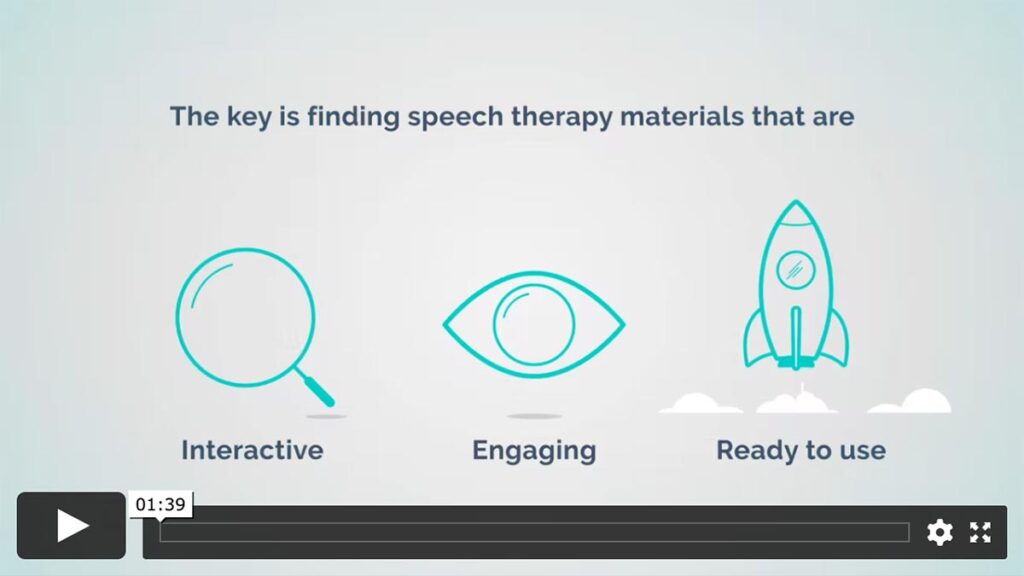
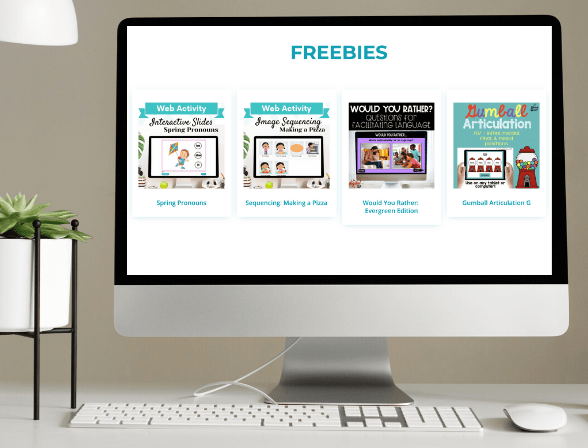


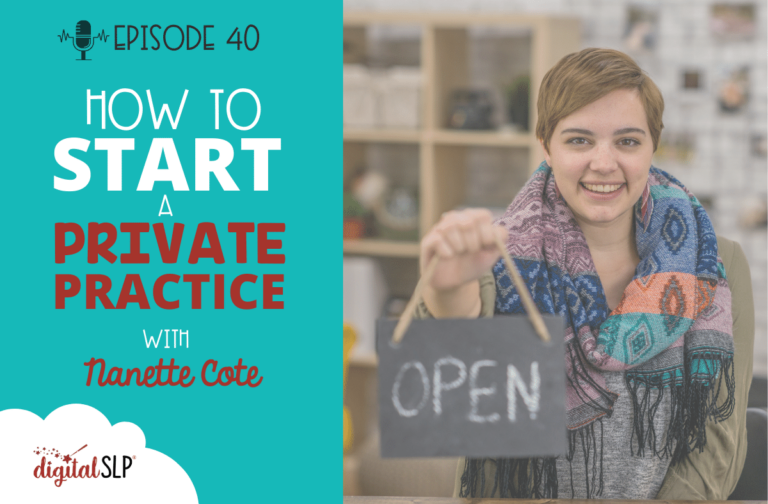
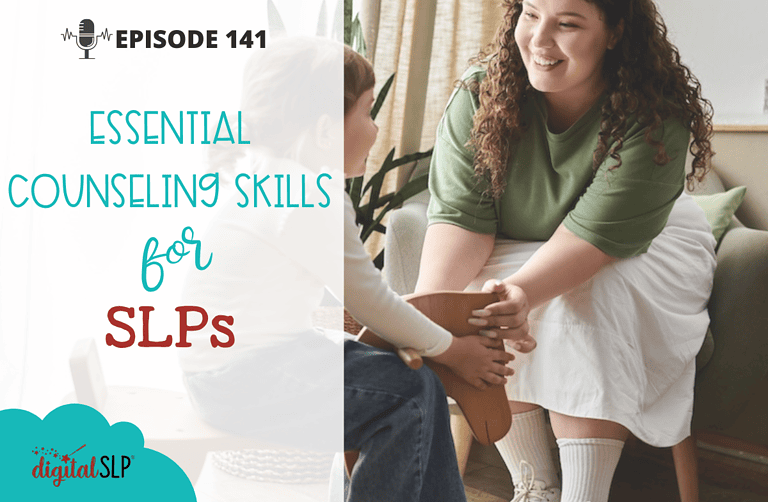

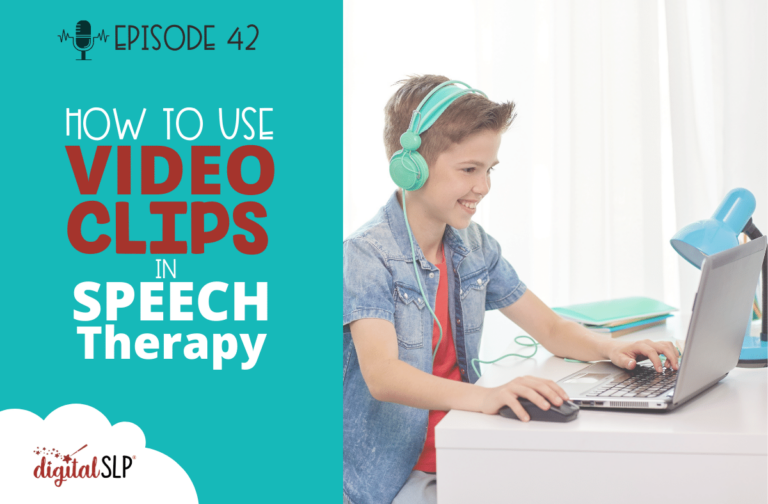


Recent Comments